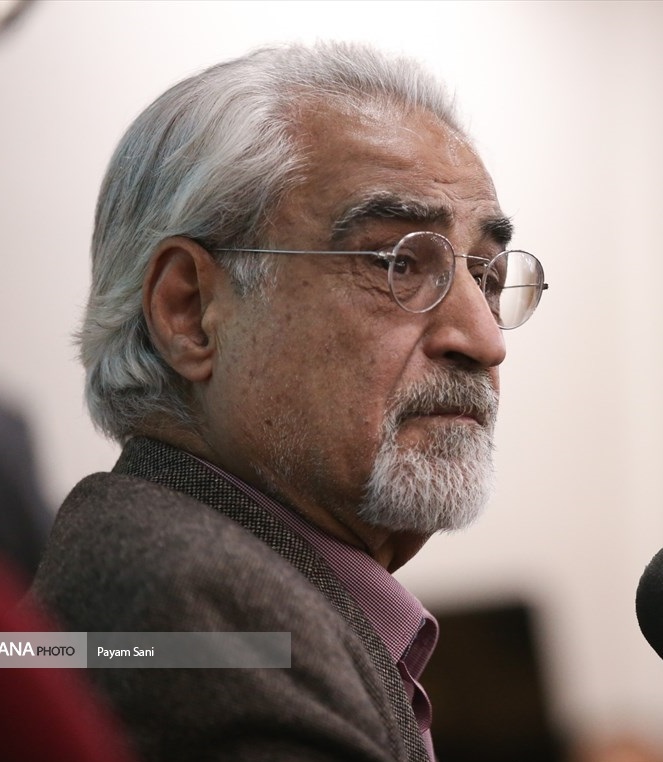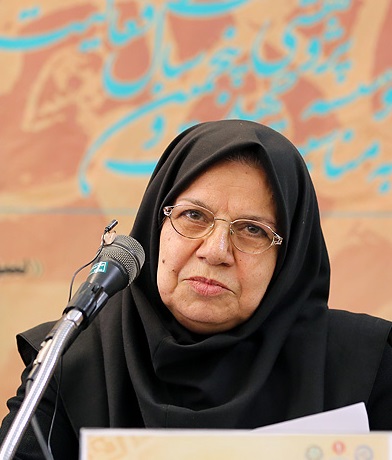Khusrawānī's wisdom in ῌāfiz Shīrāzī's thought and the study of the possibility of the influence of S̲h̲ayk̲h̲ al-Is̲h̲rāḳ's thought on it.
Keywords:
ῌāfiz, S̲h̲ayk̲h̲-i Is̲h̲rāḳ, Khusrawānī's Wisdem, Mad̲h̲hab-i RindānAbstract
Introduction S̲h̲ihāb al-Dīn Yaḥyā al-Suhrawardī known as S̲h̲ayk̲h̲-i Is̲h̲rāḳ or “Master of Illumination” (1154 – 1191 AD), believed that some of the kings and prominent personalities of ancient Iran, such as Kayūmarth, Farīdūn, Kay-khusraw, and Prophet Zoroaster, were guided to the right, People of ecstasy, and had a divine spirit (Khuvarna; Farrah;The glory Light) And they had the "light of Ṭāmes" (which annihilates the seeker, leads to a small death in the face of the great death in the great resurrection, which is for all living beings.) and calls his wisdom the “ῌīkmat-i Khusrawānī”. In the intellectual system of (Khwadja) Shams al-Din Muḥammad ῌāfiz Shīrāzī (1315-1390 AD), the names of some kings of ancient Iran such as DJams̲h̲īd and Kay-khusraw, as well as the word "Mughān" had a special place. It seems that ῌāfiz in his poems introduces this Kings as the wise men of "mad̲h̲hab-i Rindān" (religion of “one whose exterior is liable to censure, but who at heart is sound”) and its patterns Statement of the problem Although there is no doubt about the authenticity of ῌāfiz's system of thought, the idea in which Khusrawānī's Figures play a role is one of the things that put ῌāfiz next to S̲h̲ayk̲h̲-i Is̲h̲rāḳ and because of the temporal precedence, the possibility of Enlightenment Wisdom's influence on ῌāfiz's thought. The subject of this article is to examine this section of the commonalities and differences between the wisdom of Khusrawānī S̲h̲ayk̲h̲-i Is̲h̲rāḳ and ῌāfiz Shirazi. In this study, it will be determined that "each of the ancient kings of Iran; "What role do they play in ῌāfiz's intellectual system and Suhrawardī's Enlightenment wisdom, and what are the sources of their thought in this regard?" Also, "What is the place of the thought and word "Mughān" in each of ῌāfiz's thoughts and thoughts of S̲h̲ayk̲h̲-i Is̲h̲rāḳ?" And "Is it possible for S̲h̲ayk̲h̲-i Is̲h̲rāḳ's thoughts to influence ῌāfiz or not?" Method To identify this part of Khusrawānī's wisdom of ῌāfiz, the author first examined the names of the kings mentioned in his poems (Diwan) and identified kings such as DJams̲h̲īd, Kay-khusraw and their spiritual successor, Iskandar (Alexander the Great) who play an important role in his thought. Then, search for the history and position of their dignity in Zoroastrian Sacred Scriptual and texts (including different parts of Avesta and literature called Pahlavi) and the history and literary culture of the early Islamic period of Iran, and then search for the importance and position of each of these kings. It has been studied both in the works of S̲h̲ayk̲h̲-i Is̲h̲rāḳ and in the poems of ῌāfiz. Also, the most important paradigmatic words of the names of these kings (DJām-i DJam and DJām-i Djahān Bīn; A cup where the state of the universe and the unseen are visible, and Iskandar Mirror) in the mentioned texts and the works of these two thinkers have been studied. Finally, the word Mughān and its syntagmatic words, which were among the prominent words in ῌāfiz's intellectual system, were examined along with the reason for ῌāfiz's acceptance and Suhrawardī's reluctance to Mughān and its religion . Research Findings Khusrawānī's wisdom of ῌāfiz is fundamentally different from Khusrawānī's wisdom of Suhrawardī due to the presence of personalities such as Djams̲h̲īd and Iskander, as well as the position he gives to Mughān in his system of thought. What Suhrawardī has said about the ancient kings of Iran in his works is more compatible with Zoroastrian sacred scriptures. He does not place the name of Djams̲h̲īd alongside the letters of other idealistic Iranian kings and Fahlavi scholars because of the sins attributed to him by religious texts. He acquits Zoroaster of his belief in duality without quoting the hymns of the Gathās and introduces him as a disseminator of ideas about Khuvarna and light. He also makes no effort to purify the Madjūs (Dualists and claimants of following Zoroaster) and, contrary to the opinion of his philosophical commentators, Shahrazūrī (13th century AD) and Ḳuṭb al-Dīn Shīrāzī (1236- 1311 AD), adheres to ancient Persian texts and despite Iskandar's enjoyment of Greek wisdom, Suhrawardī does not place him among the sages who benefited from the Khamīreh-e Azalī (eternal dough). But ῌāfiz, unlike S̲h̲ayk̲h̲-i Is̲h̲rāḳ, is adheres only to post-Islamic Iranian literature and culture and its mystical literature and in his poems, Djams̲h̲īd and Iskander have an acceptable face and in his intellectual system, Mughān are introduced as clerics of Rindān religion. Therefore, the possibility of ῌāfiz being influenced by Khusrawānī's wisdom in his system of thought is completely ruled out.

























